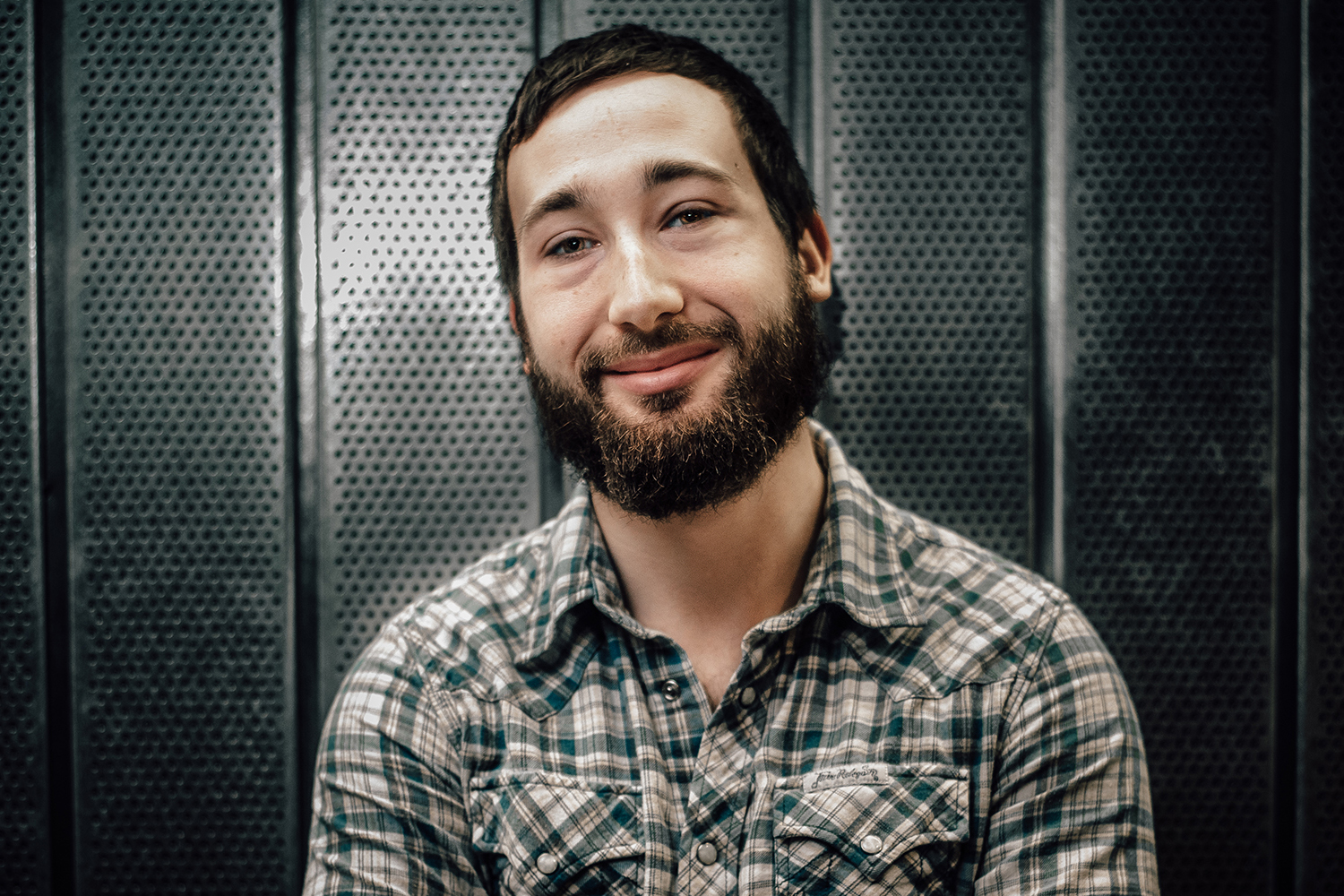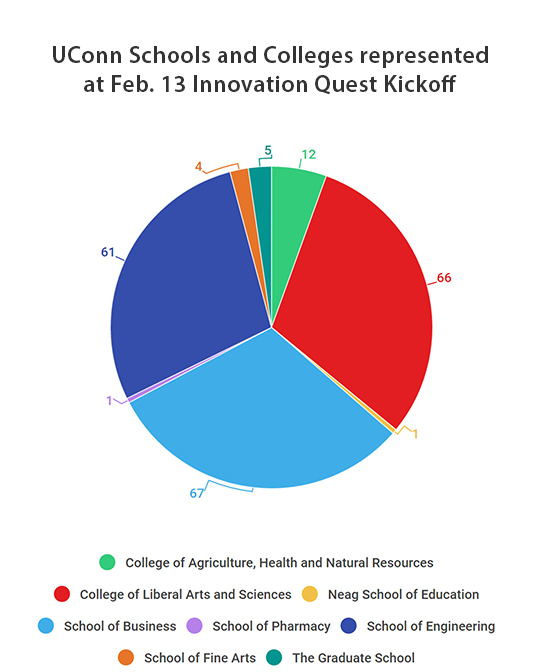“It’s Not a Passive World”
Freshman Michael Mayo has dreams of building a roller-skating business adjacent to his alma mater, New Britain High School. His goal would be to afford students some much-needed recreation while also offering them classes and hands-on knowledge about how to run a business.
Mayo has perfected his business plan for two years. With only three similar facilities, all in other parts of the state, the timing, location and concept seems ideal, said Mayo, who hopes to complete majors in business, film and education while at UConn.
“I think an entrepreneur is someone who goes for what he or she wants. It’s not a passive world,” said Mayo, who credits his business-savvy dad for teaching him good negotiation skills and money sense.
Competition Provides ‘Priceless’ Opportunity
“I think an entrepreneur is someone who goes for what he or she wants. It’s not a passive world.”
Mayo was one of more than 200 students who attended the kickoff for UConn’s sixth annual Innovation Quest (iQ) on Feb. 13, hoping their dreams of creating a new business will come to fruition. The iQ program offers advice, encouragement and mentoring from experts in business incubation and strategy.
Open to students in all disciplines, the top finalists will share $30,000 in prize money and receive an invitation to the much-sought-after summer InQbator program, which has been described as a ‘business bootcamp’ for aspiring business owners.
“The goal of Innovation Quest is to move from an idea to a ‘captured opportunity,'” said Rich Dino, director of the iQ program and a management professor. “Forming a business is the ‘priceless’ win.”
Contestants Strive to be Thoughtful, Creative
Alex Podgorski, a sophomore majoring in electrical engineering and computer science, said he wants to create a unified, contactless charging device that can’t short-circuit if it gets wet.
“I have a lot of ideas,” said Podgorski, a native of Portland, Conn., and a Navy veteran. “And I don’t give up easily!”

Linda Mejia, a senior business management student, wants to create a more sophisticated travel website than what exists today. Mejia has studied in Paris and Australia and during her travels at home and abroad, she felt she could have used better maps, reviews and other information to guide her journeys.
“I think an entrepreneur must have the right mentality that includes futuristic thinking, as well as be organized and be endlessly innovative,” said Mejia, a native of Milford, Conn.

‘The Best Idea Hasn’t Been Thought Of Yet’
During the first phase of iQ, teams prepare their competition application, develop prototypes and discuss their ideas, with the goal of sharpening their thinking and their inventions.
The participant field is narrowed down over several months and top applicants are invited to join the intense, six-week InQbator program. During the final InQbator session, the teams present their now-refined plans to an audience of angel investors and venture capitalists.
iQ mentor Larry Yakaitis ’81, president of Mantana Group, a software company in Mystic, said he is looking for students who are willing to heed good advice.
“If you think you can do it alone, you won’t succeed. Entrepreneurs have to understand that it takes a team to bring an innovation to the marketplace,” said Yakaitis, who was the UConn college roommate of Keith Fox ’80, the man who initiated the iQ program at UConn.
“I hope the students wake up every day and truly believe that the best idea hasn’t been thought of yet!” Yakaitis said. “I also hope that some of what I’ve learned in 35 years in business is helpful to someone else. I call it the ‘UConn circle of life.'”
Dean John A. Elliott noted the program’s popularity has grown over the years. “We are helping the next generation of entrepreneurs,” he said, taking a few moments to thank the people who have provided guidance, inspiration and accommodations for budding entrepreneurs. “We’ve had remarkable success in bringing the ideas to fruition.”
Fox, who attended the meeting via video conference, said he is excited that students from every major are participating in the competition.
That impressed Anna Bourgault, an assistant clinical professor in the School of Nursing. She said nurses today are more empowered than ever, and are on the front line of healthcare delivery.
“We want them to voice ideas, be part of the team, and resolve issues in our healthcare system,” she said. “They are the ones at the bedside, discovering and solving problems. At UConn, we are developing the innovative nurses of the future.”
Last Year’s Winners Include Medical Technology, Glowing Shrimp
Stephanie Knowlton, a Ph.D. student who was one of the winners of last year’s iQ competition, has developed diagnostic medical tests through her company, mBiotics, LLC.
“I would tell iQ students that they’ll get out of it what they put into it,” she said. “Apply what you’re learning to your company and get the most out of the experience. Even if your first company falls flat, it’s OK. The skills you develop will be so valuable in the future.”
Tony Patelunas, another successful 2016 iQ participant, developed glowing shrimp for aquariums. Consumers will even be able to select the color of the shrimp they wish to purchase through his company, Aquatic Genomic Technologies, LLC.
“I think perseverance is essential,” he said. “It will get you through that grueling process of creating a business. I think you need skills, experience and certainly the ability to ‘pivot’ when needed. You have to take small steps and rely upon your mentors.”
A fourth-year Ph.D. student, with a background in molecular and cell biology, Patelunas said his discovery was an offshoot of his expertise. Usually he works with mice.
“I just didn’t think inventing colorful mice would be as popular,” he joked.




